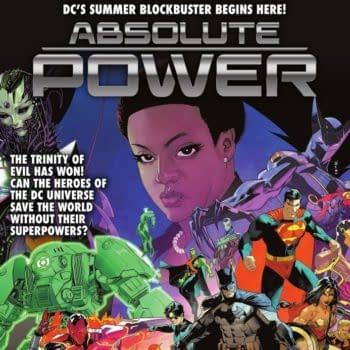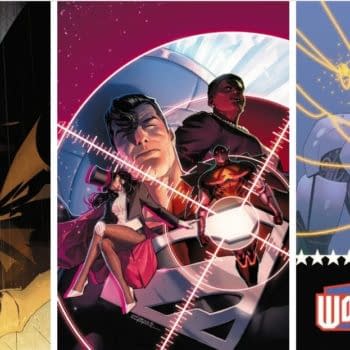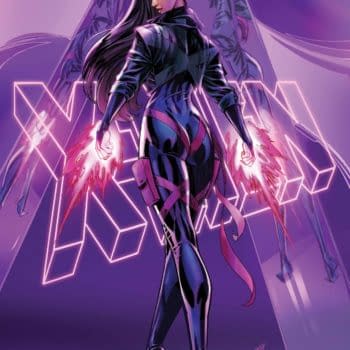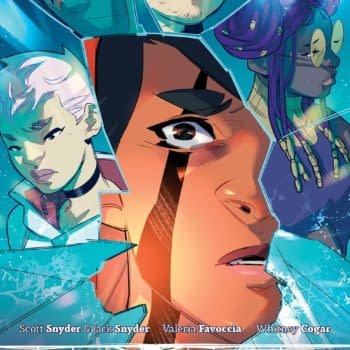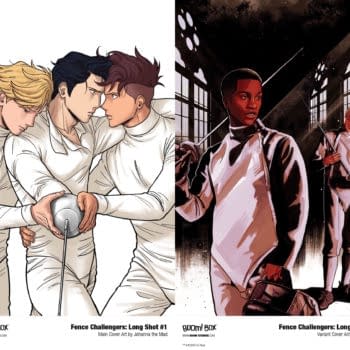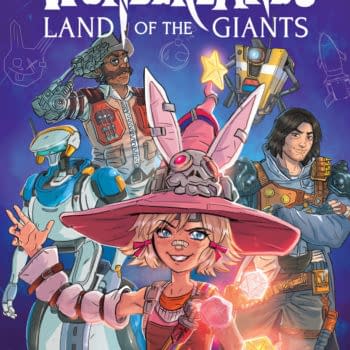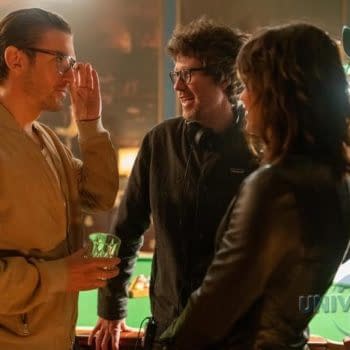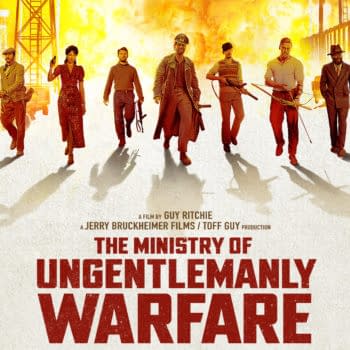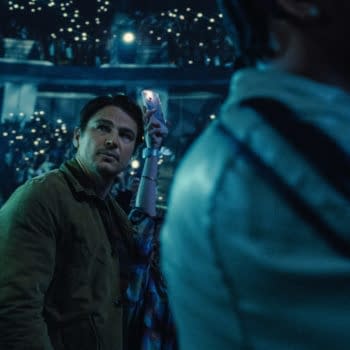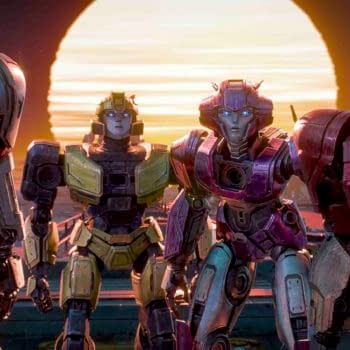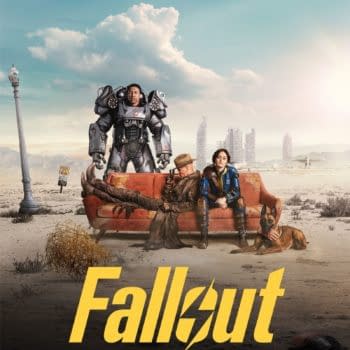Posted in: Look! It Moves! by Adi Tantimedh, Movies, TV | Tagged:
Persona 4 Golden: New Game Plus Gets An Anime – Look! It Moves! by Adi Tantmedh
Adi Tantmedh writes,
In Japan, video games get adapted into anime series all the time, but this is the first time I've seen the second playthrough of a game get an anime that winks at the viewer.
Persona 4 is a much-loved Japanese Role-Playing Game on the Playstation 2 that I'm quite fond of. It's a combination of contemporary Japanese teenage life simulator, fantasy dungeon-crawling RPG and murder mystery with oddball humour.
The hero is a teenager sent to live with his uncle in a small town for a year while his parents are abroad. During that year, he goes to school, makes friends and discovers an urban legend is real. He and his friends can access an alternate dimension called The Midnight Channel via a TV screen. There they can turn aspects of their personas into tangible warriors to fight demons that represent the dark sides of the human psyche, including their own dark sides and emotional flaws they have to overcome, after which they use their new powers to save other people who have been sucked into The Midnight Channel. Back in real life, they discover that a series of murders in the town are linked to The Midnight Channel, and the victims were dragged in and killed there. The hero and his friends become a Scooby Gang to solve the mystery in both real life and The Midnight Channel, and during the course of his year in the country, become more confident and self-assured as he learns to care for people and save them. It's the typical superhero narrative for teens.
Persona 4 is a game designed to be last tens, if not hundreds of hours and always had the air of a life lesson game about it. Its gameplay design was on the surface the usual RPG of levelling up skills and abilities to combat demons, but they were presented as metaphors for psychological health and life lessons to build up social skills. The demons the hero and his friends have to overcome at first are Jungian representations of their own dark sides and emotional problems like low self-esteem and depression, then save other people from their demons. All this is tied to the life lessons the hero – your proxy – would learn to become a fully socialised, functional member of society with friends and emotional ties, which also become the hero's greatest strength and the solving of the murders is the culmination of his emotional maturation over the course of the story's year. The one thing the game does very well is replicate the day-to-day feeling and rhythm of being a Japanese teenager in school, then breaking up the mundane parts of the life simulation with escapist fantasies like fighting demons and becoming a superhero sleuthing gang. Its central theme is identity and how a teenager finds his own as he goes from a hesitant introvert to the leader of a close-knit group of friends whose identities he's helped find. Every subplot and quest is tied to the theme of understanding and determining one's identity. Its main lesson was that to do well at school, make friends, join clubs, go on dates, and generally being nice was what it took to be a productive member of Japanese society. Pop culture as socialising tool.
It makes perfect sense, then, that Persona 4 was adapted into an anime series last year. It followed the game's story quite faithfully and chose a default path for the many slightly divergent plot strands in the game. A Playstation Vita version of the game, Persona 4 Golden, was released in 2012. It was the same game, but added a new character, Marie, who had her own mystery and storyline involving the hero helping her recover her lost memory and discovering her true identity so she can choose her own path in life. Oh, and the hero and his friends get to ride scooters
Now there's an anime adaptation of Persona 4 Golden as well, which is a surreal piece of meta-commentary. It tells the same story as the original anime, but assumes the viewer has already seen the former, so skips over the parts of the story that were already told there and concentrates on the new storyline involving Marie and her arc. But there's another layer in Golden: the hero seems to know he's done all this before and is not the shy, ambivalent kid from the start of the original story. Instead, he's the forthcoming, proactive extrovert from the end of the original story. He already has all his powers fully developed early on in the new anime, as if this was an anime adaptation of a New Game Plus playthrough where a player starts the game again with the full social and magical powers the character achieved at the end of the first game. He's more of a player/viewer than ever, doing and saying the things you want to do when you already know what's coming.
Golden is an anime series that lets the viewer in on the secret. It's in active dialogue with the game it's adapted from, the original game, the previous anime series, and the viewer. It assumes the viewer already knows all about the other versions of the story and has come looking not just for the comfort of fan service but also new surprises. This reminds me of Borges' idea of all the books in a library having a conversation with each other, only taken further to include several mediums to extend the scope of the story. It's a story being retold to take a different path. In theory, you could do several versions of the story with different paths, people to meet and different endings. The main difference here is that the hero knows he's been here before and is breaking the fourth wall to let the audience in on that. It's the fantasy of reliving a life with the foreknowledge of where everything's going and being able to act differently and with more mischief and confidence. Only Japan, with its deeply entrenched sense of meta-narrative and the interconnectedness of multimedia franchises, would turn a New Game Plus into a commercially viable subgenre of story that still feels like it has something to say. It's surreal and oddly exhilarating that someone would actually do this. More existential video games and anime as life lessons and social tools for teenagers. This is what pop culture in the future looks like.
Everyday is a New Game Plus at lookitmoves@gmail.com
Follow the official LOOK! IT MOVES! twitter feed at http://twitter.com/lookitmoves for thoughts and snark on media and pop culture, stuff for future columns and stuff I may never spend a whole column writing about.
Look! It Moves! © Adisakdi Tantimedh









